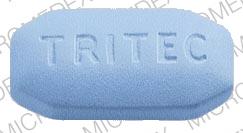Ranitidine bismuth citrate Disease Interactions
There are 3 disease interactions with ranitidine bismuth citrate.
H2 antagonists (applies to ranitidine bismuth citrate) GI bleeding
Major Potential Hazard, Moderate plausibility. Applicable conditions: Gastrointestinal Hemorrhage
Histamine H2 receptor antagonists should not be used in the presence of vomit with blood, or bloody or black stools. These might be serious conditions and the diagnosis needs to be ruled out.
Ranitidine bismuth citrate (applies to ranitidine bismuth citrate) porphyria
Major Potential Hazard, Moderate plausibility.
Ranitidine may rarely precipitate acute porphyria attacks. Therapy with ranitidine bismuth citrate should be avoided in patients with a history of acute porphyria.
Ranitidine bismuth citrate (applies to ranitidine bismuth citrate) renal dysfunction
Moderate Potential Hazard, High plausibility.
Ranitidine bismuth citrate is primarily eliminated by the kidney. Therapy with ranitidine bismuth citrate should be administered cautiously in patients with renal impairment, and avoided in patients with creatinine clearance < 25 mL/min.
Ranitidine bismuth citrate drug interactions
There are 130 drug interactions with ranitidine bismuth citrate.
Ranitidine bismuth citrate alcohol/food interactions
There is 1 alcohol/food interaction with ranitidine bismuth citrate.
More about ranitidine bismuth citrate
- Check interactions
- Compare alternatives
- Side effects
- Dosage information
- During pregnancy
- Drug class: H2 antagonists
Related treatment guides
Drug Interaction Classification
| Highly clinically significant. Avoid combinations; the risk of the interaction outweighs the benefit. | |
| Moderately clinically significant. Usually avoid combinations; use it only under special circumstances. | |
| Minimally clinically significant. Minimize risk; assess risk and consider an alternative drug, take steps to circumvent the interaction risk and/or institute a monitoring plan. | |
| No interaction information available. |
Further information
Always consult your healthcare provider to ensure the information displayed on this page applies to your personal circumstances.


